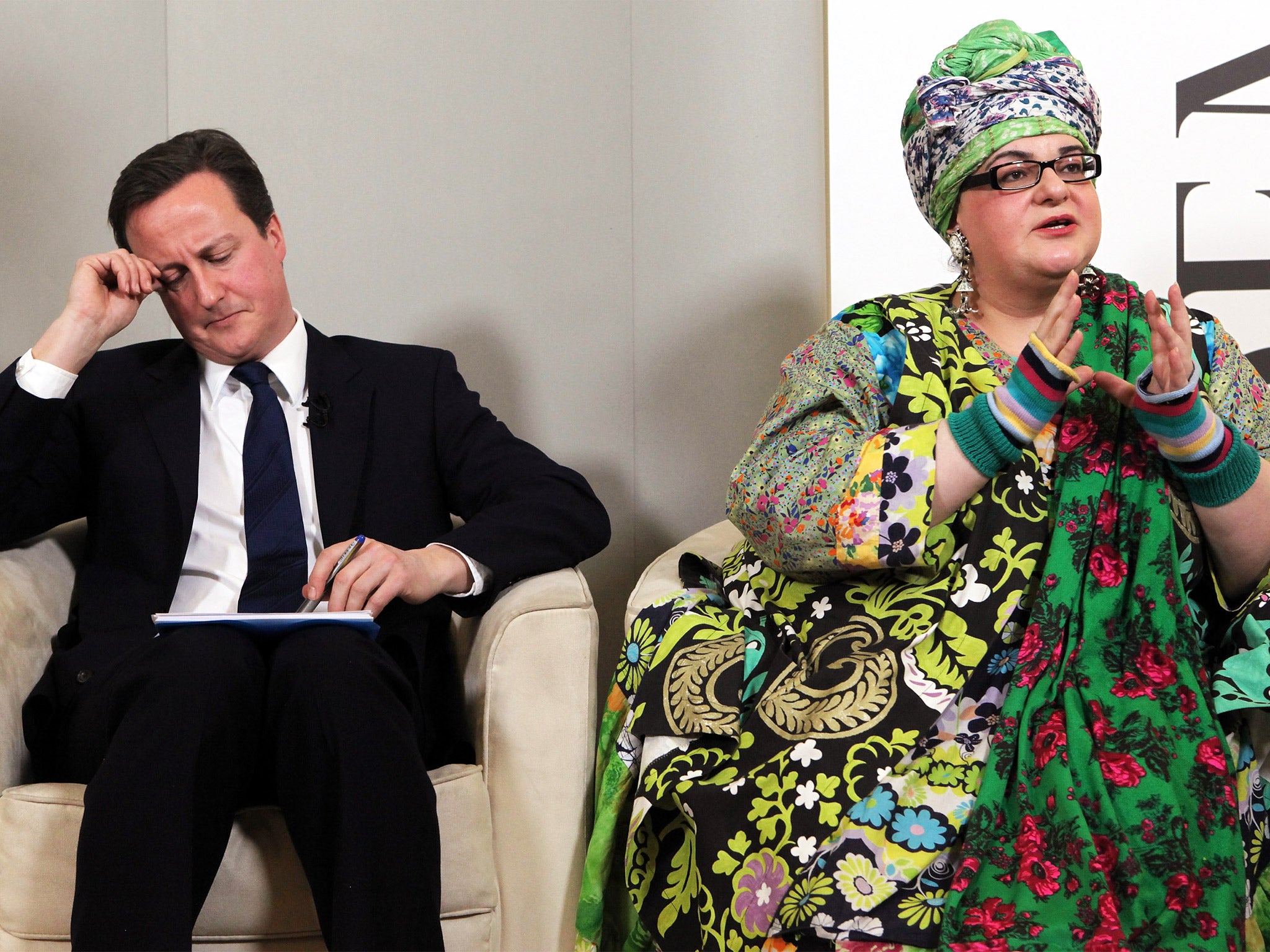The lesson from Kids Company: Leave to charity, leave to chance
It's not enough to hope that charity and happy thoughts will tackle poverty

Your support helps us to tell the story
From reproductive rights to climate change to Big Tech, The Independent is on the ground when the story is developing. Whether it's investigating the financials of Elon Musk's pro-Trump PAC or producing our latest documentary, 'The A Word', which shines a light on the American women fighting for reproductive rights, we know how important it is to parse out the facts from the messaging.
At such a critical moment in US history, we need reporters on the ground. Your donation allows us to keep sending journalists to speak to both sides of the story.
The Independent is trusted by Americans across the entire political spectrum. And unlike many other quality news outlets, we choose not to lock Americans out of our reporting and analysis with paywalls. We believe quality journalism should be available to everyone, paid for by those who can afford it.
Your support makes all the difference.On the surface, the sudden demise of Kids Company, the children’s charity that has announced it will cease trading with immediate effect, is a story of government failure. The high profile and media savvy of the charity’s founder, Camila Batmanghelidjh, encouraged politicians to plough more funds into a charity that was the subject of suspicion, not only among civil servants – who allegedly raised concerns with Downing Street as early as 2007 – but also throughout the charitable sector.
Gordon Brown, then Prime Minister, apparently feared the media backlash that might ensue if he pulled funding from the charity, while his successor, David Cameron, made Kids Company the exemplar of his “big society” policy and no doubt feared the consequences of letting it collapse.
So you could be forgiven for thinking that the collapse of Project Batmanghelidjh means the Government should step back a bit. Let charitable giving sort the best from the worst. The big state is dead – come back big society, all is forgiven.
That’s the Conservative conceit, at any rate. Cameron’s vision for the public realm is closer to anarcho-communism than revivified Thatcherism: cut away the state and, as if by magic, a better Britain, full of yurts and charitable endeavours, will take its place. It’s less the year of magical thinking, more five years of wishful thinking.
George Osborne’s budget was simply more of the same. Faced with a problem that has frustrated policymakers for decades – what to do about the boom in low-paid jobs – Osborne’s plan can be split into three steps. Step one: cut tax credits. Step two: sit and wait. Step three: end up with a high-pay, low-tax economy.
The charitable sector faces a toxic cocktail. Private individuals, still feeling the pinch of the recession, are reducing the amount they give, while there is no end in sight to the Government’s programme of cuts. Both are seduced by the myth of “red tape”: the idea that endless savings can be made by stripping away bureaucracy, that the best charities are the least-administered. Fundraisers complain that the question they hear most often when they call donors is: “What percentage goes on admin?”
But the failure of Kids Company shows the limits of that approach. Strip away funding, encourage a race to the bottom in terms of administrative costs, and what happens is not a big society but a bad one. The much-maligned figure of the charity administrator, far from being the drain on resources of tabloid nightmare, is all too often the difference between donations that are frittered away, and money well spent. A charity that spends just 1 per cent on administration may turn out to waste more money than one which spends 15 per cent.
Because it’s not just Kids Company that’s failed. Last Friday, the British Association for Adoption and Fostering (BAAF) shut down. BAAF’s demise had none of the fanfare that accompanied the closure of Batmanghelidjh’s organisation, but much of the vital work it did will go unfulfilled. Coram, another adoption charity, will pick up some but by no means all of the slack.
And the worse news? These are just the more glamorous charities. Children in poverty are more sympathetic than adults in the same condition. People battling with prolonged debts, or suffering from alcoholism, are less sympathetic. It is these, less glossy parts of public provision that are increasingly farmed out to the charitable sector, with dire consequences.
Seventeen per cent of all women’s refuges have closed since the Conservatives came to power in 2010. Some through lack of funding, others through the type of institutional failings that reportedly scuppered Kids Company. For almost all, the end came suddenly, without warning, and the people who depended on them were left with nothing. Legal centres are likewise shutting down throughout the country.
The lesson of close to half a decade of cuts is that the charitable sector doesn’t, or cannot, step in when the state steps back. That “bureaucrats”, just like the Whitehall mandarins who warned against handing over further cash for Kids Company, do not in fact increase costs but actually keep them under control. When you leave it to charity, you’re leaving it to chance: to a generous donor, to an inspiring manager, to things which are here today and gone together.
It’s not enough to hope that charity and happy thoughts will tackle poverty. Donations and marathons aren’t enough to pick up the slack when the Government cuts spending. It’s not enough to have a big society. You need a big state, too.
Stephen Bush is editor of the New Statesman’s politics blog, The Staggers
Join our commenting forum
Join thought-provoking conversations, follow other Independent readers and see their replies
Comments